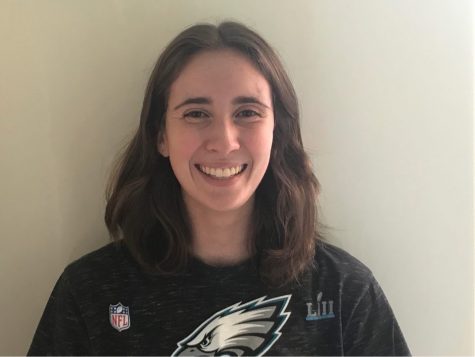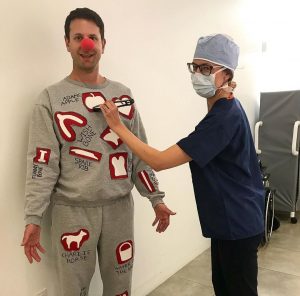Dr. Wheeler discusses intersectionality of racism and public health
August 19, 2020
Dr. Darrell P. Wheeler is the Provost and Senior Vice President of Academic Affairs at Iona College. He is a nationally renowned scholar and educator who has done extensive research on disparities in health, especially concerning the HIV epidemic.
In the light of the coronavirus and the growing Black Lives Matter movement, Margaret Dougherty sat down with Dr. Wheeler to discuss the relationship between racism and public health, the importance of diversity in the health field and how these issues relate back to Iona College.
This interview was conducted via Zoom and has been edited for space and clarity.
MD: You have devoted a large part of your career towards researching about inequities in public health, especially when it comes to racial disparities. Could you explain a little about your research and how it connects to the relationship between racism and public health?
DW: The research that I’ve done has focused primarily on HIV prevention and intervention. I’ve led or been involved in research projects, program evaluation projects and implementation studies (taking interventions and trying to reproduce them in real world settings). I’ve had research funded by the National Institutes of Health, the National Institutes of Mental Health, the Centers for Disease Control and Prevention, Substance Abuse and Mental Health Services Administration as well as private and public foundations and local governmental entities. I’ve done work in every state in which I’ve lived – North Carolina, New York, Illinois and internationally with a project I had in Nigeria. I’ve been privileged to have a pretty diverse set of activities and exposures. Over the course of the American experience, we have created systems through what we call structural barriers that prevent certain groups from accessing health. Certain groups were not included in things like the census and wellbeing four hundred years ago. The health systems that were created were not actually designed to accommodate or care for those [groups]. For example, I was born in the “Black” hospital in Chicago because the medical system was still divided, not by signs but by practice. There were hospitals that were redirected for certain groups of people. The relationship is very deeply entrenched in everything American. It is about the ways we use tools, who gets to control the narrative, the nature of the providers who control the public health mechanisms and the policies. You have to remember that in the United States, we don’t have a national healthcare system. We have broad strokes at healthcare, but healthcare is delivered at the local level…not just by states but local health departments within states. New York’s public health may look very different than Kentucky or Missouri’s public health. There are so many layers to it. It’s not an easy question to answer and in the contemporary environment with the news from the summer it seems easy, but it’s four hundred years in the making and it’s cut across every state differently.
MD: With the current COVID-19 pandemic, there is a stark disparity in how it disproportionately affects racial and ethnic minority groups. What factors help explain this increased risk?
DW: Think about concentric circles; the individual is at the center one and four layers out you’ve got the community and policy. Each one of those [circles] contributes to what makes you and I more or less susceptible to COVID-19. It’s a number of factors. One, it’s about density and coming into contact with the virus. The more virus around you, the more likely you’re going to come into contact with it. If you live in crowded situations or you’re pushed into public spaces more, you’re more likely to come into contact with it. Another important part that disproportionately puts certain groups at risk is your general health before you even come into contact with COVID. Because of all the other factors that we were talking about, we know that in a world without COVID, Black and brown people are more likely to have untreated hypertension, coronary vascular disease, diabetes and obesity. Those factors will decrease your body’s ability to ward off an infection and increase the likelihood that once the infection is there, it’s going to have a worse effect on you. When we talk about the disproportion, it’s because of the underlying health conditions of the communities that are impacted – related to historical factors – and the density in which people live and traverse, putting them at greater risk of coming into contact with COVID cases.
MD: One aspect of the Black Lives Matter movement has been the focus on having more diversity in every field. What is the importance of diversity in the health field specifically?
DW: It’s critical for a number of things. There has to be diversity on many levels. For example, I do a lot of research on HIV/AIDS and, in the past 15 years especially, the issue of transgender experience in healthcare systems has come up where there are no providers who truly understand transgender individuals’ lived experience. They’re not able to engage in a healthy dialogue and discourse to assist people. The same applies to linguistic differences. If I take you to a healthcare provider system, it could be the best in the world, but you speak a language that is different from the language of the healthcare provider system, you’re not going to get quality healthcare. Diversity in the ranks of the provider system is critical: diversity of thought, diversity of demographics, diversity of economic status, diversity of linguistic capabilities. People are putting a lot more emphasis on ramping up the providers’ skills to be culturally humble. If I put a Black provider in there who doesn’t respect other Black people, it’s not going to help. It’s not just about putting people together based on skin type but putting people in a position who have the capacity to truly deliver the quality of service. Providers can be allies and not be experts over individuals but join with them to facilitate relationships and use the skill of listening to be able to cocreate positive health experiences.
MD: Lastly, how do these important issues relate back to the health and safety of students, especially Black students, at Iona College?
DW: We have to be open to a discussion that there’s nothing inherently about [your skin color] that is putting you at risk, it’s about us all understanding that risk is something that emerges because of the circumstances, the history, the policies and the structures. Therefore, we actually have much more control over that – we can help both our Black students and our non-Black students to realize that we each can do something to prevent COVID and promote better health across groups. The issue here is what we are going to do differently to reduce the likelihood of poor health for communities, not just what it is about that community that makes them at greater risk. To help our Black students on campus, we’re allies with them, not fixing them. Being allies by saying, “What can we do collectively to create better health?” On Iona’s campus, we can make sure during this semester particularly we are all adhering to the use of face mask coverings, social distancing and regular testing protocols so that we can identify positive cases when they emerge. These are the things that each and every one of us can do. If we really believe in Black Lives Matter, every one of us has a role to play in stopping the next COVID case on our campus that then enables us all to be in a healthier space to then focus on our academic trajectory. The next generation will be able to leave Iona with their degree in hand to go on to do the things that they want to do. I feel passionately about that. One of the things I would like to see happen is community forums with our students periodically throughout the semester. I’m the only tenured black male professor on Iona’s campus. I am the only professor on Iona’s campus who has 30 years of documented HIV research. Look at people in the media – Tony Fauci, Deborah Birx – we all cut our teeth in HIV research, which is the closest pandemic. We need to have forums where the next generation is hearing and sharing with old-timers like me. We really need conversation and I feel like we haven’t done enough of that.



